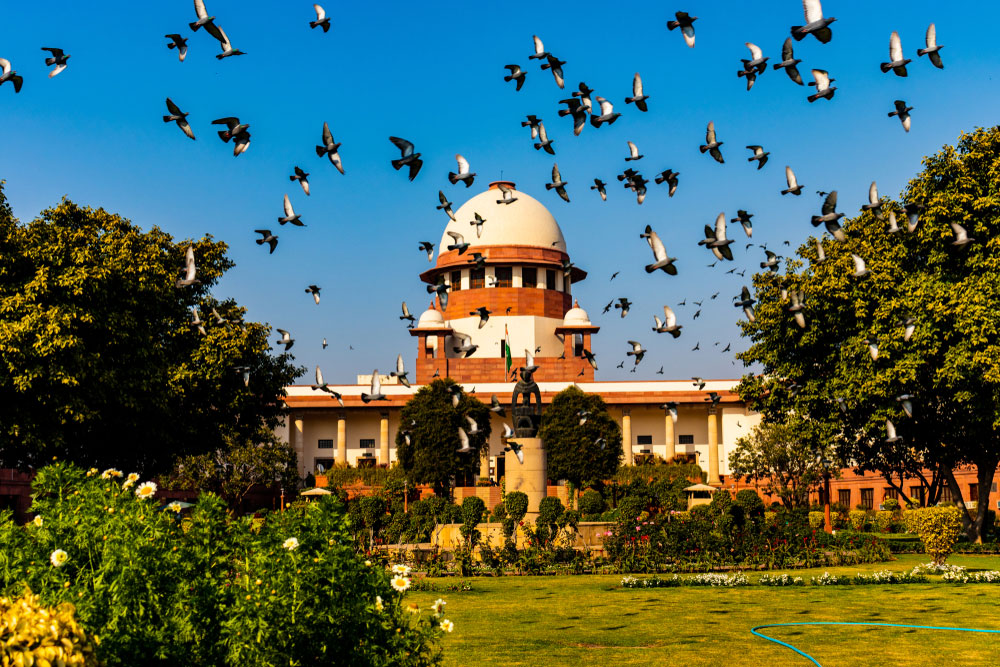One of the Muslim claimants in the Ayodhya title suit on Monday approached the Supreme Court for a review of its November 9 judgment that handed over the disputed plot to Hindus to build a Ram temple.
Maulana Syed Ashhad Rashidi has argued that the verdict condones the demolition of the Babri Masjid despite the five-judge constitution bench that delivered it acknowledging the act was illegal, as was the instalment of Hindu idols at the site.
“This hon’ble court erred in granting a relief which virtually amounts to a mandamus (directive) to destroy the Babri Masjid,” Rashidi’s petition, filed through advocate Ejaz Maqbool, says. The review petition is yet to be listed for hearing.
Rashidi wants the court to reconsider some of the verdict’s directives, such as the handover of the 2.77-acre plot to Hindus and the provision of a five-acre plot elsewhere in Ayodhya for the Muslims to build a mosque.
“Though in the impugned judgment this hon’ble court has acknowledged (a) few of the several illegalities committed by the Hindu parties, particularly in 1934 (damaging the Babri Masjid’s domes), 1949 (desecrating the mosque by installing idols) and 1992 (demolishing the mosque), however, this hon’ble court has proceeded to condone those very illegal acts and has awarded the disputed site to the very party which based its claims on nothing but a series of illegal acts,” the petition says.
“Consequently, this hon’ble court has disregarded the settled legal principle of ex dolo malo non oritur actio (no right accrues on account of any fraud) by lending its aid to a party which based its cause of action upon an illegal act.
“Further, this hon’ble court has, in an attempt to balance the reliefs between the parties, while condoning illegalities of the Hindu parties, allotted alternate land admeasuring 5 acres to the Muslim parties, which was neither pleaded nor prayed for by the Muslim parties.”
Rashidi has said he is conscious of the sensitive nature of the issue and understands the need to close the matter for the sake of peace and harmony in the country. However, he has argued, there can be no peace without justice.
He has cited the following passage written by M. Cherif Bassiouni, a US law professor: “Peace… is the restoration of justice, and the use of law to mediate and resolve inter-social and inter-personal discord. The pursuit of justice and accountability fulfils fundamental human needs and expresses key values necessary for the prevention and deterrence of future conflicts. For this reason, sacrificing justice and accountability for the immediacy of realpolitik represents a short-term vision of expediency over more enduring human values.”
Rashidi adds that the apex court has erred by relying on travellers’ accounts and archaeological findings to decide a land dispute.
He has argued that the top court took a mistaken view of the issue in “unevenly appreciating evidence and giving precedence to oral testimonies of the Hindu parties vis a vis the contemporary documentary evidence of the Muslim parties, which resulted in incorrect application of (the) doctrine of preponderance of probabilities”.










